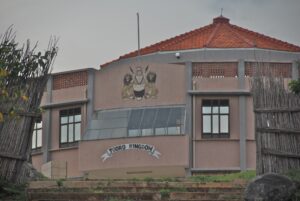Batoro/Batooro people are the hospitable natives of Toro/Tooro Kingdom. The Kingdom is a constitutional monarchy. This is the Kingdom that came into existence in 1822 (Bruce Clay.com).

Source: Twitter.com
The founder of this Kingdom was Prince Olimi Kaboyo. This was the eldest son of Omukama Kyebambe Nyamutukura. Kyebambe was a king of Bunyoro.
Batooro are found in western Uganda. They belong to Bantu ethnic group of people. They constitute 3.5 of Uganda’s total population. This is according to the 2012 census. Kabarole Resource and Research center carried out this census.
Where are Batoro found?
The Batoro/Batooro people belong to the Kingdom of Tooro in Uganda. Toro is located about 300 kilometers by road from Kampala. This is south-west of Kampala, Uganda’s capital. The districts of Hoima, Kasese, Bundibugyo and Kamwenge are the borders of Tooro. The main district of Tooro Kingdom is Kabarole district.
Toro/Tooro was a wide area especially during the pre-colonial period. It comprised seven districts. These include Kabarole, Kyenjojo, Kamwenge and Kasese. Other districts are Bundibugyo, Kyegegwa and Ntoroko.
The birth of Obusinga bwa Ruwenzururu from Tooro
After sometime, Kasese broke away. It then became an independent political unit. Of recent, Kasese also became a cultural kingdom. It is now under Obusinga bwa Ruwenzururu. All the districts that make up Toro are independent political districts. However, they remain culturally under Tooro kingdom.
This is due to the unity among these districts created by Tooro kingdom. They even pay allegiance to the King. The current King of Toro is Oyo Nyimba Kabamba Iguru Rukidi IV.

Source: pbs.twimg.com
Tooro lies at the foot of Ruwenzori Mountain. This is along the hilly plateau. This plateau runs east from the extreme west of the lacustrine region. It goes towards Mubende district. This is according to Steinhart.
The origin of Batooro
The Kingdom of Tooro is the mother of Toro sub region. It is said to have been formed around 1822 (Bruce Clay.com). This is when the first son of the King of Bunyoro split the Southern part of his father’s kingdom. The King of Bunyoro was Omukama Kyebambe Nyamutukura. His son was called Prince Olimi Kaboyo.
He then formed his own kingdom. This Kingdom came to be known as Toro/Tooro kingdom. This led to the breeding of a new tribe of people. These were the Batooro/Batoro.
The economic life of the Batooro
Economically, the Batooro practiced subsistence agriculture. This was just like other communities in Uganda before colonial rule. They grew crops such as bananas, yams, beans and maize.
All crops were grown on small scale. Traditional methods had been based upon subsistence economy. This involved payment in kind and trade through barter. Hunting was also an important economic activity.
Batooro also had contacts with other communities in Uganda. This was due to the need to access those items which were not produced in Toro. It was mainly because of climate or soil.
How important was Tooro to other parts of Uganda?
Other communities like the Baganda and the Acholi depended on Batooro. This dependence was mainly for salt.
Salt was a scarce commodity in pre-colonial Uganda. The only sources of salt were Katwe and Kasenyi. These two grounds became part of Tooro in 1830. This is according to Karugire (Bruce Clay.com).
Were the Batooro/Batoro colonized?
The Batooro/Batoro did not survive colonial rule. They were just like other tribes in Uganda. The 1900 Toro agreement integrated Toro into the rest of the protectorate. As a result, the British introduced exploitative policies such as taxation. These policies integrated Toro into colonial economy.
Also, the British promoted agriculture in Toro. They did this by trying a number of crops. these included ground nuts, simsim and coffee among others. However, of all these, coffee and cotton proved to be more successful.
Land ownership in Tooro during colonialism
The settler farmers were not successful in the land of the Batooro. This was also the case in other parts of Uganda. It became difficult for Uganda to become a settler economy. This was due to the several restrictions on buying land. Alienation was also very difficult. The Batooro, therefore, did not experience white settlers.
Any allocation of land exceeding one thousand (1000) acres had to be approved. This was the role of the secretary of state for colonies. The secretary based in London. The settlers therefore had to buy land at high prices. The demand for cash crops had to be fulfilled through local farmers as opposed to large settler plantations.
The social life of the Batooro
Socially, religion played an important role in the day to day life of the Batooro. This was the same among other western-Uganda Bantu tribes. The Batooro practiced ancestral worship. It was punctuated by a cultural ceremony called Embandwa.
Embandwa cultural ceremony
This was a traditional worship. It is a practice that united the Batooro. Many people from different backgrounds in Tooro converged for this ceremony.
The whole basis of this religion was the strong belief in the continuity of human life. The arrival of Christianity in Toro undermined the traditional religion of the Batooro. This was due to the work of Christian missionaries in Toro.
Christianity in Tooro
The Christian revolution in Uganda and Toro in particular was due to largely the work of British colonialists. These colonialists moved from Buganda (central Uganda) to south western Uganda after 1894.
In Toro, Christianity was associated with King Kasagama. He was an ally of Buganda and Britain against Bunyoro.
What was the first religion in Tooro Kingdom?
The first religion to be established among the Batooro was Islam. This came with the Arab traders. These are the traders who established the first shops in Toro. They established shops along which they put rooms. Such rooms acted as simple mosques.
The society of Batooro had a number of clans that had totems. This is similar to what was in other western (Uganda) Bantu societies. The Toro clans played different roles in the palace. For example; the Babiito clan produced the kings to rule Toro. The Baisanza clan produced the speakers to the Toro kingdom parliament. This was called the Orukurato.
Education in Tooro
The Batooro had their system of education. It is through this system that the young got instructions. This helped to enable them grow up into disciplined people. The clans of Batooro had various mechanisms of orienting young children into adulthood.
They did this through clan leaders especially before the advent of colonial rule.
In this type of education, the young and the old were given skills on how to survive. These skills based mainly on the environment. The absence of missionary schools in Uganda did not mean the absence of education. This is according to Tiberondwa.
The basis of traditional forms of education
In Uganda, traditional forms of education existed based on tribes and clans. This therefore means that the education among the Batooro was different from other regions.
Conclusively, units of clans among the Batooro covered both the theoretical and practical fields of education. One did not have to go to school to be educated. The whole process of living was a process of learning.
